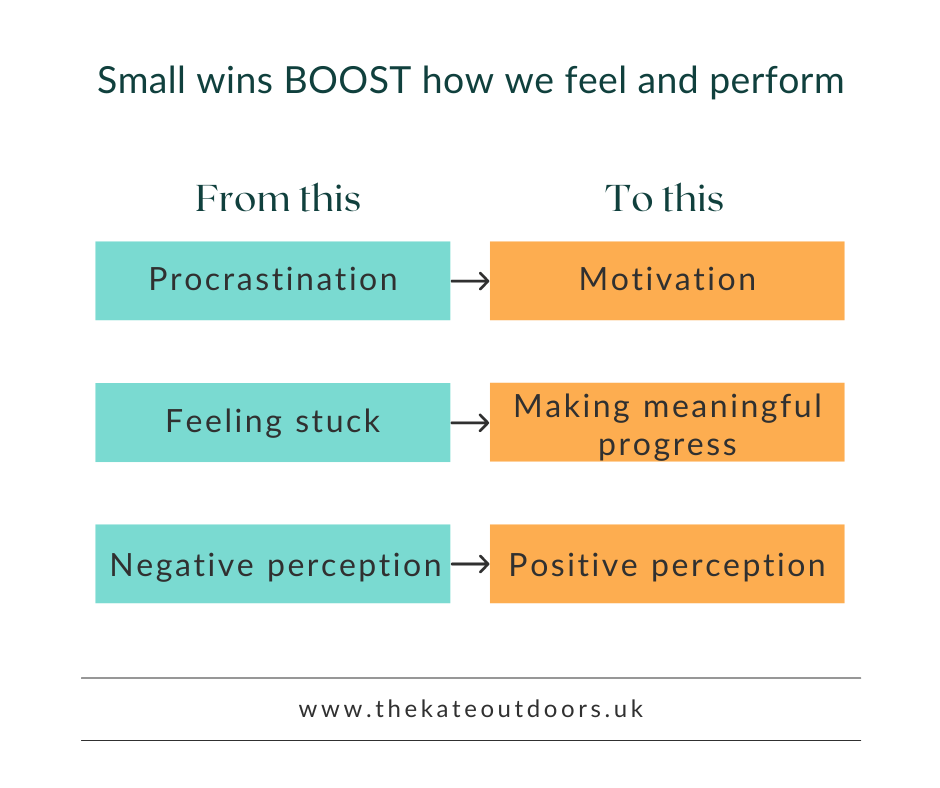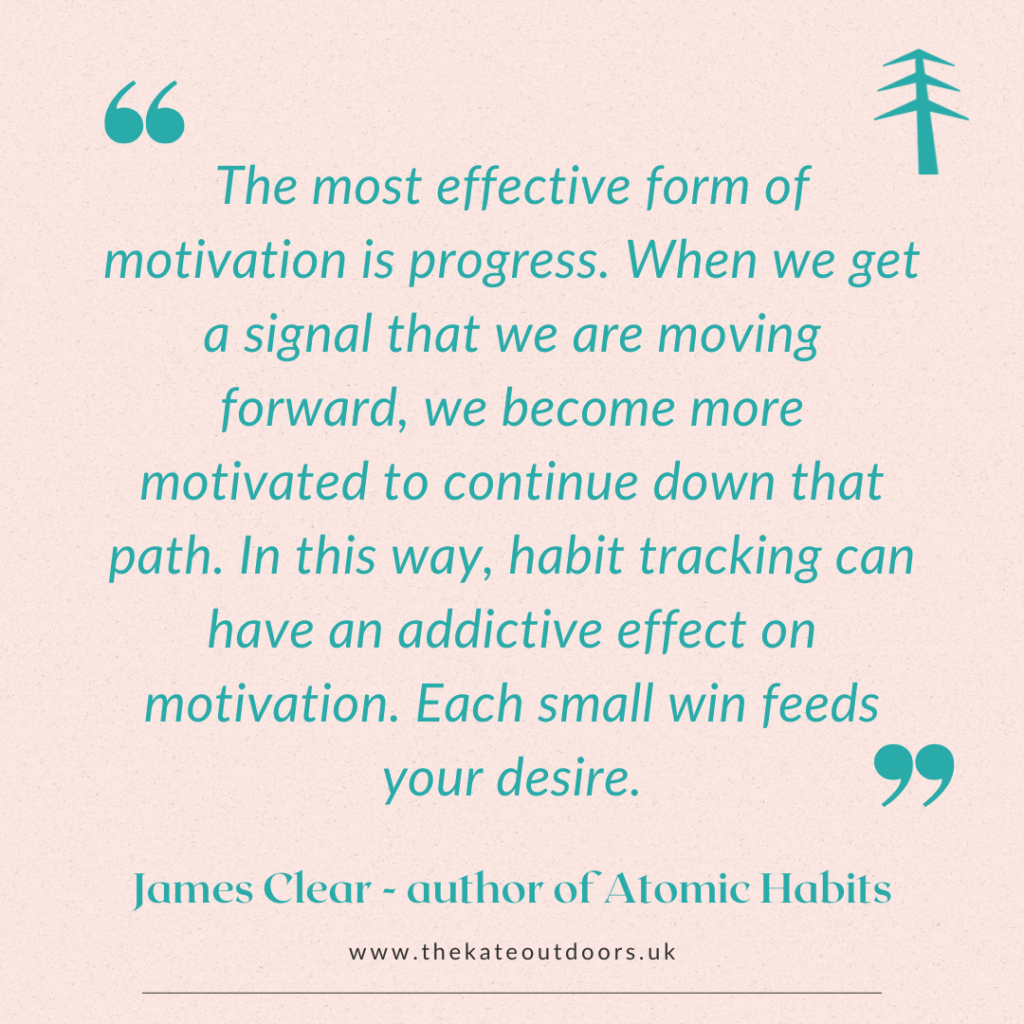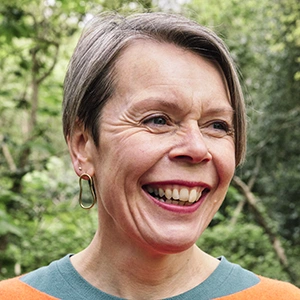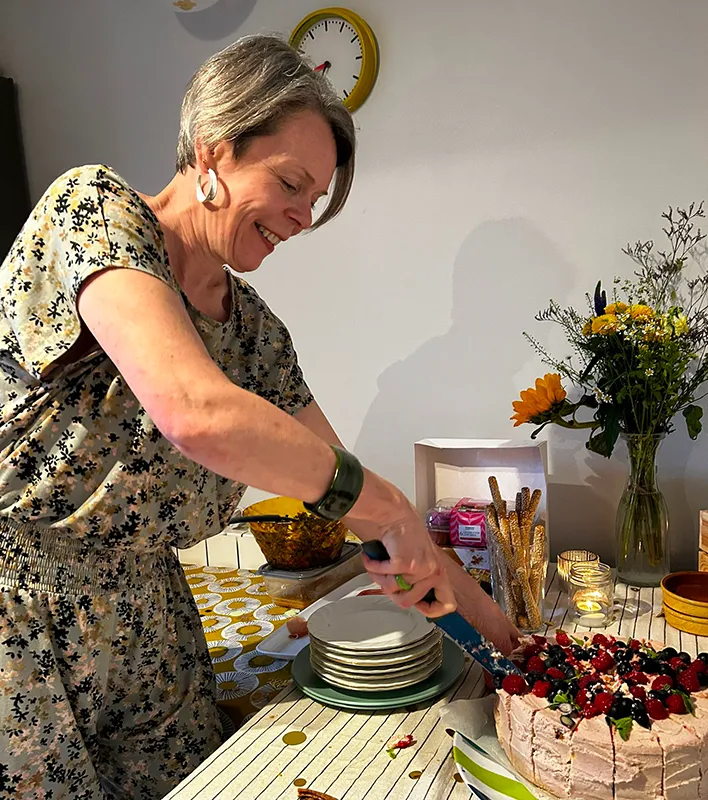Feeling stuck and trying to get motivated?
Celebrating small wins can significantly impact our motivation, performance and perspective. Ideal if you’re asking yourself, ‘why am I procrastinating?’ and desperate to move forwards!
Yet small wins are often overlooked.
What are small wins?
Small wins are the bitesize and sometimes barely noticeable successes and achievements we experience on our way to bigger success. While these accomplishments might seem trivial on their own, their cumulative effect is powerful.
Examples of small wins
- Cooking a healthy meal rather than grabbing something convenient
- Exercising when you don’t feel like it
- Doing that thing that you’re putting off
- 4 years in business and a special birthday (my recent small wins!)
A story
Years back I worked with my first Coach to get me out of my career rut and into something new, I could barely notice much good about myself: perimenopausal, on antidepressants, feeling stuck. To notice my small wins felt ridiculously difficult, although deep down I knew that actually, it was quite simple.
One part of me saying: ‘You only have to notice the small things – the wins!”
The other part: ‘…but I don’t feel like I’m achieving anything!’
Yet when I started to recognise these seemingly insignificant, daily moments of victory, I realised I was starting to feel more positive. And, I was getting things done. Moving towards my bigger goal of leaving my ‘career rut and into something new’ became more tangible and achievable – though I didn’t know at that point, what I was moving towards! Reassuringly, this small wins strategy was nothing new: I’d just ‘forgotten’ that it was a thing and, by paying it some attention, it actually worked.
A clue: the discomfort. This ‘simple’ challenge felt difficult. It was going to take effort. Change had to happen ‘inside me’ – my perspective, mindset, energy.
Another clue; feeling more positive and getting things done felt like I was making progress: moving away from feeling stuck and towards something better.
The impact; I started my journey (again) out of the rut, but this time it was different – I was paying for life-coaching and had the ear of someone I trusted. I was accountable to her and me. I felt like I was ‘doing the work’ and it was working.

The psychology behind small wins
According to research on how people perceive their work in different organisations by Teresa Amabile and Steven J. Kramer from Harvard Business School, people who tracked their small achievements every day enhanced their motivation.
Generally, any perceived accomplishment, no matter how small;
- boosts our mood
- increases motivation
- reinforces positive behaviours
The most crucial factor in all of this? People need to feel like they’re making meaningful progress. And when they do, they’re more likely to be productive, a concept Amabile and Kramer call the Progress Principle.
Negativity bias – the takeover
It’s important to say – and highly likely you’ve experienced this too – that the opposite can also be true: setbacks can undermine it all. If you’re applying for jobs and not getting an interview it’s hugely discouraging. This is where negativity bias can not just kick in, but take over. Our brains are hard-wired to remember the negatives. An evolutionary adaptation, this helped our ancestors identify threats and increase their chances of survival. The performance review where one negative was raised amongst 10 positives? The chances are that you’ll remember that one negative the most.
Why small wins are important
A small win can make all the difference because it impacts how we feel and how we perform. They can be the stepping stones of success towards the bigger goal, or simple moments of joy and appreciation. The act of noticing these victories and regular and positive reinforcement fuels our wellbeing, whilst nurturing a positive mindset. It also builds resilience for when the going gets tough – a great tool to counterbalance the negativity bias (reframing). See also the Inner Critic, which I’ve previously written about.
So, not just small steps everyday, but small celebrations everyday to lift your mood and motivate your mojo!

I also notice in my 1-2-1 life coaching work that;
- Small wins are hugely personal: without the intrinsic interest of the individual, it is meaningless
- Tracking wins is crucial, to measure, review and maintain progress
- Celebrating small wins – the progress – acts as a catalyst for continued success
Read James Clear’s bestselling book, Atomic Habits for healthy habit creation and understanding more on motivation.

How to celebrate your small wins
- What did you achieve today that you might otherwise have not realised? What gave you joy today? Create a list and capture at least 3 each day – they have to be different. Either in the moment, or capture them at the end of the day.
- Create a list over at least a week
- Can you appreciate your wins each day?
- At the end of the week, review. How do you feel now, to before? What do you notice?
- Extra step – try this over a 3-4 week to period to create a new habit.
If it feels tricky to notice your own, notice them in others and apply the above approach. There’s an additional step here – to share what you notice with them. Be genuine and authentic. What’s the point in keeping it to yourself?!
Noticing and celebrating your small wins is GOOD for your wellbeing and mindset. By celebrating seemingly inconsequential achievements, we are better able to tune inwards to build ourselves back up. We cultivate a sense of accomplishment and purpose in ourselves and maybe in others too. Overlook no more! Get (small) winning!

